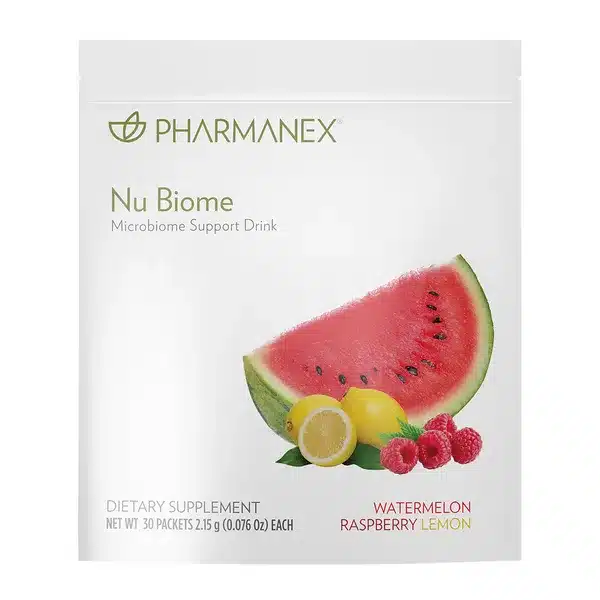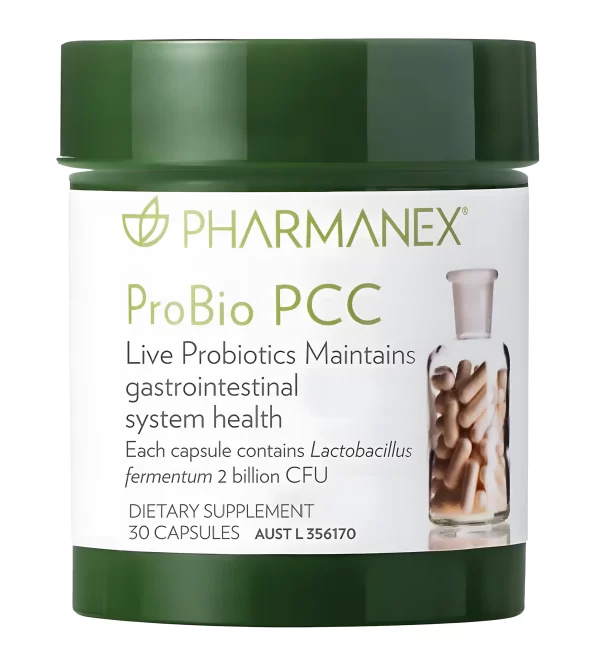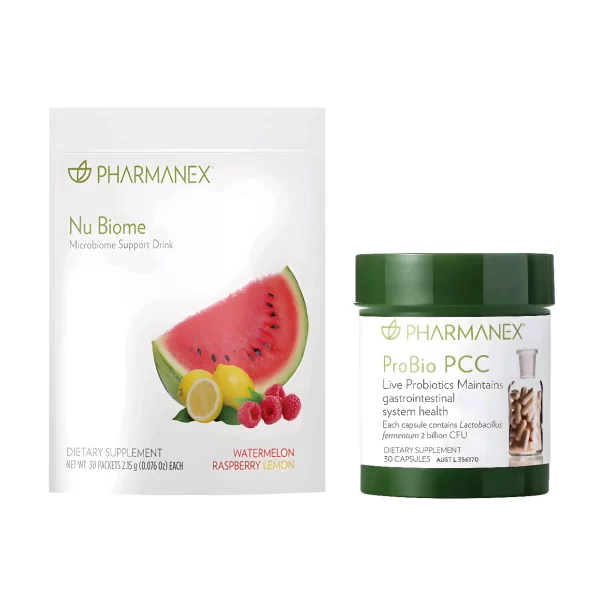We quite often heard about how important that Flora can affect our gastrointestinal health, and 3 words: Prebiotics, Probiotics, and Postbiotics are also quite frequently mentioned, today we are going to explore them in detail.
There is a whole new field of research dedicated to studying how gut health affects the rest of the body. One of the most interesting areas of research is prebiotics and probiotics, sometimes called “friendly” bacteria.
Deep within our digestive system, 100 trillion bacteria live in our intestines. Unfortunately, poor diet, too much alcohol, antibiotics, hormones, and stress can disrupt the natural balance of this bacteria.
In fact, it’s been reported that 4 out of 10 of us experience digestive or other gut problems. So it’s no surprise that we often see new diets, products or lifestyles that promise a healthier gut.
In addition to prebiotics and probiotics, there are also postbiotics.
1. Prebiotics
What are prebiotics?
Prebiotics are defined as a group of nutrients that feed the gut microbiota, and they are also degraded by it – which is not a bad thing. The degradation products of this prebiotic are further released into our bloodstream, which benefits our overall health.
There are several types of prebiotics, but most of them are a subset of carbohydrates.
The most common prebiotics include:
Fructans – such as inulin and oligofructose (FOS), which may be able to stimulate lactobacilli and other bacterial species
Oligogalactans– which stimulate two key types of friendly bacteria, bifidobacteria and lactobacilli
Starch and glucose derived oligosaccharides – a resistant starch that produces high butyric acid (a short-chain fatty acid), which is beneficial to our health。
What do prebiotics do?
Prebiotics can alter the composition of the gut microbiome for the better. For example, consuming prebiotics has been shown to support the immune system by increasing the number of protective microbes. On top of that, studies have shown that they can even reduce the number of harmful microbes.
Probiotic foods
We can increase our intake of prebiotics through our food choices. Some of the best prebiotic sources include:
Chicory root – 68% of the fiber comes from inulin
Garlic – promotes the growth of bifidobacteria
Onion – good source of inulin and oligofructose
Artichokes — rich in inulin
Dandelion Green — another source of inulin fiber


Nu Biome-Nu Skin Gut Health Formula
Gut check: intestinal unease getting you down? From aiding digestion to helping maintain your overall gut health, the microorganisms in your GI tract impact your wellness far beyond your stomach. Nu Biome helps harness the benefits of a healthy microbiome through a dual approach using pre-and postbiotics. It supports a healthy balance of good and…
2. Probiotics
What are probiotics?
Probiotics are live microorganisms that, when consumed in moderation, can provide health benefits to our bodies.
Probiotics are usually found as supplements, but can also be added to foods and beverages.
Different Types of Probiotics
Although they are often called “probiotics”, there are many different types. The most common types of probiotics usually include:
Lactobacillus – usually added to yogurt and cheese, but also found naturally in fermented foods
Bifidobacterium bifidum – usually added to yogurt and cheese, or naturally occurring in some fermented foods or live yogurt
We can also find these probiotics in over-the-counter supplements, capsules, powders and beverages.
What do probiotics do?
Probiotics can help maintain a healthy balance in the body, certain types of probiotics can help with digestion and improve some stomach-related health problems.
Natural “good” bacteria can keep us healthy at all times, but supplementation may help with other problems, especially after illness.
It is important to note that different strains of bacteria may have specific benefits under certain conditions, while others may not. Not all benefits can be provided by one product or food.
8 Probiotic Foods
Live yogurt
Some cheeses
Kefir (also spelled kephir or kefier; Russian: кефир; Adyghe : къундэпс; Karachay -Balkar: гыпы)
Kerir is a fermented milk drink similar to diluted yogurt or an ayran made from kefir grains, a specific type of thermophilic symbiotic culture. The drink originated in the North Caucasus , especially in the Elbrus region of the upper mountainous regions of Cherkessia, Karachay, and Balkaria, from where it spread to Russia and from where it spread to Europe, Canada, and the United States, where it was prepared by inoculating the milk of cows, goats, or sheep with kefir grains.

Kefir is a popular breakfast, lunch and dinner drink in Russia, Belarus, Estonia, Hungary, Latvia, Lithuania, Poland, Romania, Ukraine and the Czech Republic – where it is considered an affordable and healthy drink. It is also widely known in Norway, Sweden and Finland, where buttermilk-based fermented milk drinks are common. Kefir is particularly common among ethnic minorities in Russia and Estonia. (In Yugoslavia in some countries/regions, kefir is consumed at any time of the day, especially with zelnik /zeljanica, burek and banitsa / gibanica, and in cold soups served in the summer.)
Uncultured buttermilk
Black tea mushrooms: a type of bacteria used to make black tea
Sauerkraut
Fermented olives
There are also probiotic supplements that can be taken in capsule, tablet or powder form.
Probio Pcc™-Nu Skin Active Probiotics
Pharmanex’s unique strain of Lactobacillus has shown an extraordinary resilience to the growth of undesirable organisms in the gastrointestinal tract. Clinical research shows an increase in the growth of beneficial bacteria in the digestive tract after the introduction of this particular bacteria strain. Its ability to survive passage through the harsh environment of the stomach,…
3. Postbiotics
What are postbiotics?
Probiotics are bacteria that are beneficial to the gut and postbiotics are by-products of these bacteria. They are bioactive compounds produced by probiotics after they consume fiber or prebiotics.
What does postbiotic metabolites do?
Expert nutritionist Alex Glover explains:
“Postbiotics are compounds produced as the end product of fermentation of prebiotic fibers by our beneficial bacteria. Compounds such as lactate, butyrate and other short-chain fatty acids help to maintain intestinal pH and mucous membranes, and are being studied for a variety of other beneficial physiological functions.”
How do I get postbiotics from my diet?
Compared to prebiotics and probiotics, postbiotics are more difficult to obtain.
Specific health food stores or online retailers may sell postbiotic supplements. We can also get postbiotics and prebiotics from our diet by consuming foods and beverages that are the main source of prebiotics and probiotics, which are later broken down into prebiotics in the gut.
8 Foods That Help Our Gut Produce Postbiotics
Yogurt: Most people choose yogurt when they want more gut-friendly bacteria in their diet. Yogurt is made by culturing milk with lactic acid-producing bacteria such as Lactobacillus bulgaricus and Streptococcus thermophilus, and it’s a great way to boost postbiotic production through your diet.
Tempeh: Another source of live bacteria is tempeh. This is a fermented soy product similar to tofu that is often used as a protein source in vegetarian and vegan recipes. The great thing about tempeh is that it is a source of beneficial prebiotics and postbiotics.
Yeast Bread: In addition to containing smaller amounts of gluten, yeast bread has prebiotic properties and can be a source of friendly bacteria such as bifidobacteria, which may help control gut-related symptoms.
Kefir: Kefir is another food that contains live bacteria but converts to kefiran Kefiran (a postbiotic) when consumed and may promote beneficial effects on food allergies.
Kimchi Pickles: refers to the type of kimchi that has been fermented with salt for a longer period of time and carries bacteria that are naturally present on its interior and surface.
Cheese: Similar to yogurt, cheeses such as cheddar, parmesan, and howdah are great sources of live bacteria that can reach the intestines and exert beneficial effects.
Kimchi: Refers to the type of raw vegetables that are first salted and then seasoned with various other ingredients such as red chili powder, onions, garlic and ginger Kimchi is used for secondary fermentation. It contains the same healthy strains of Lactobacillus bacteria found in yogurt and cheese, and is another food that can support gut health as well as many other bodily functions.
Kombucha Tea: Research on the types of lactobacilli it contains and their benefits.
As opposed to prebiotics and probiotics, postbiotics are more difficult to obtain directly from everyday foods, and a more direct way to get them is through postbiotic supplements.
4. Benifits
9 Benefits of Prebiotics, Probiotics and Postbiotics
They may help with weight loss
Previous studies have found that lean people have different gut bacteria than obese people. This may be because a high-fat, low-fiber diet promotes the growth of “bad” bacteria in the digestive system. A study published in the British Journal of Nutrition found that taking probiotics could help women lose weight — and keep it off! —27 Researchers concluded that rebalancing gut bacteria may strengthen the intestinal wall, making it harder for the gut to absorb large fat molecules.
They can boost your mood
We know that our emotional state affects our digestion, and now scientists have shown that our gut can affect our brain. Available evidence suggests that creatures under stress have different gut bacteria than those in a happy mood. Harmful bacteria can disrupt nerve signals from the stomach to the brain – nerve signals that transmit feelings of fullness and stress. But now, probiotics have been shown to improve mood.
Researchers at the UCLA School of Medicine have found that taking probiotics can relieve anxiety and stress by affecting activity in the area of the brain that controls emotional processing. MRI scans of women who participated in the study showed that brain circuits associated with anxiety became less sensitive after taking probiotic supplements for a month.
They can fight colds and flu
In addition to the vitamin C supplements you can take to fight colds and flu, you can also take probiotic supplements to minimize getting colds and winter infections! A recent study found that New Zealand athletes who took probiotic supplements for a month were 40% less likely to suffer from colds and stomach problems than those who took a placebo.
They can help maintain normal blood pressure
High blood pressure is one of the main risks of heart disease. A healthy diet and exercise can help lower blood pressure, but the latest evidence suggests prebiotics can help too. Prebiotics, often high-fiber nutrients found naturally in foods such as bananas, asparagus, parsley and garlic, help “feed” probiotics and encourage them to multiply. Malaysian researchers have found that prebiotics can not only treat high blood pressure, but also prevent the disease.
They found that prebiotics help reduce the absorption of cholesterol from food, thereby lowering cholesterol levels and reducing high blood pressure.
They can treat cystitis
For years, people with cystitis have relied on lots of drinking water or cranberries to ward off infections, but emerging evidence suggests that probiotics can also help. A major review of studies found that probiotics can help rebalance “bad” bacteria in the vagina and urinary tract. They may also help stop recurrent cystitis.
They can control your blood sugar
One of the major benefits of postbiotics is especially their effect on blood sugar. Research suggests that a stomach lacking microbial balance may be a contributing factor to obesity. Early research suggests that the cytosolic acyl dipeptide muramyl dipeptide (a postbiotic ingredient) may play a role in alleviating poor glucose tolerance by increasing insulin sensitivity. —34
They may help support the immune system
Another way that postbiotics may be beneficial is by supporting the immune system. They have a variety of properties that can help, such as butyrate (a short-chain fatty acid), which stimulates the production of T cells in the gut. It is these T cells that are involved in controlling the extent of the immune system response.
Not only that, but postbiotics can also help increase the production of cytokines, which are anti-inflammatory chemical messengers that reduce inflammation levels and promote immune responses.
This effect was emphasized in a 2010 study that used 80 healthy adult participants who were supplemented daily with a probiotic. The results of this study showed a reduced risk of respiratory infections and a doubling of the ability to produce antibodies that help fight harmful toxins and bacteria.
They may help treat eczema
Another benefit of postbiotics is their potential to help treat eczema. One particular study found that taking postbiotic supplements for 8 to 12 weeks significantly reduced the severity of symptoms — while the placebo group did not record any similar improvement.
They may help suppress appetite
In addition to possibly helping with obesity by lowering blood sugar, several studies have highlighted the link between prebiotics and appetite. In particular, they suggest that they may help people achieve their weight loss goals by suppressing hunger signals.



